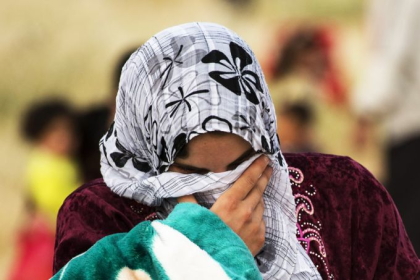
Foto: Flickr CC / NC_20 CNA
as well as churches and mosques that have armed guards. A public park could never have been guarded in such a way. It is shocking that most of the victims are children and families, many of them celebrating the feast of Easter,” they write from the Focolare community in Lahore.
It was 19:00 local time, March 27th, when a suicide bomber blew himself up in the Gulshan-e-Iqbal Park.
Pope Francis called it a “cowardly and senseless” crime as he recalled Easter in Pakisatn that was “bloodied by a detestable attack that slaughtered so many innocents” including 29 children and many women.
“Along with everyone else,” they continue from Lahore, “we want to once again embrace this face of Jesus Forsaken so that he might transform this great suffering into new momentum to love, new light to illuminate minds and strengthen all people of good will. We’re praying for all the victims, the wounded and the families, that hatred will not beget hatred.”
“I was on my way to the park with my grandkids, and at one point I felt like I had to go home again,” says one friend who was saved from the massacre. “Our relatives were there at the moment of the explosion, but none of them were harmed. One of them was an 18 year old boy who tried to help a child who later died in his arms.”
“I invite us all to pray to the Lord for the many victims and their loved ones,” the Pope went on to say, appealing to “civil authorities and all members of society” in Pakistan “that they would make every effort to return peace and serenity to the population and, in particular, to the religious minorities that are most vulnerable.”
“The sacred dignity with which they suffer the pain is striking,” the people of Lahore testify, “and how much solidarity has been shown. The wounded were driven in private cars, without fear or hesitation, to nearby hospitals. The hospital staff worked without stopping. The appeal for blood donations was immediately answered by long queues at hospitals. The suffering that people have been going through for some time now and seemed to have reached its limit, has produced a new attitude, new hope that is expressed in small gestures that demonstrate a common wish: Peace.”
“In many places people are out on the streets with lit candles. The protests were carried out peacefully. In many newspapers around the world there is talk about attacks on Christians and perhaps that’s true, but here it seems to us like an attack against humanity which is the same thing. The victims are Christians and Muslims. The gestures of solidarity from abroad have been very well received, such as the offing of the lights on the Eiffel Tower. They did help Pakistan to feel that it wasn’t all alone in suffering this very painful and absurd tragedy.”
Maria Chiara De Lorenzo


0 Comments